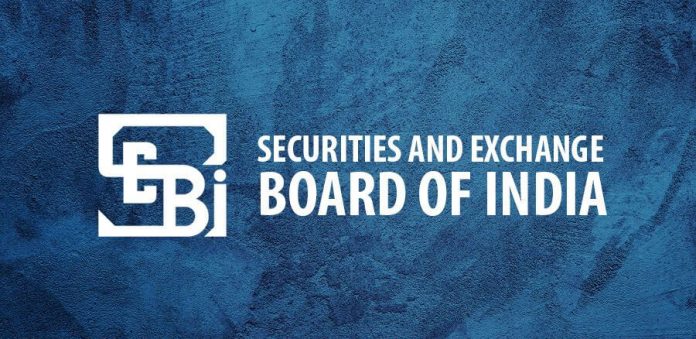This article is written by Kaushal Kumar, pursuing a Certificate Course in Capital Markets, Securities Laws, Insider Trading and SEBI Litigation from Lawsikho.com.
Table of Contents
Introduction
A preferential shareholder actually has two share price estimates to consider — the average weekly high and low for 26 weeks, and the average weekly high and low for two weeks preceding the share issue. Among these two estimates, the preferential share price must be at least the higher.
Markets regulator, India’s Securities and Exchange Board (SEBI), eased rules on 23 June 2020 for pricing preferential shares issued by distressed firms to collect funds. The measure was first suggested by way of a discussion paper on 22 April 2020. By amending the Issue of Capital and Disclosure Requirement (ICDR) rules for distressed firms, SEBI removed the 26-week section, the Government notified amendments through a notification to the gazette.
Since the coronavirus outbreak, share prices have plummeted, and holding the 26-week deadline would value the issues too high to attract any buyers. This move is supposed to boost funding for these cash-starved businesses.
Separately, the board of the meeting of the regulator considered the recommendation made by its primary market advisory committee (PMAC), which proposed that this relaxed formula for pricing should be extended to all businesses, rather than only stressed businesses.
Of course, even now, in preferential allocations made to a maximum of five international portfolio investors, or five investors in an eligible institutional placement, the 26-week requirement does not apply.
SEBI had also exempted promoters from triggering an open bid if they gain more than 5 percent and less than 10 percent from a preferential problem in a financial year. The waiver is valid until the end of this fiscal year.

What are the pricing norms for share issues
The new price formula for allocating shares under the preferential issue would be higher than the average price of 12 weeks, or 2 weeks. The new formulation of pricing would allow new shares to be issued at recent stock prices. Many market participants had approached SEBI, claiming the price discovered under the previous formula was too high and prevented promoters and other investors from infusing more capital into the company.
However, SEBI has confirmed that the shares issued under the new pricing criteria will be locked in for three years and that the price relaxation will be applicable for issuances made up to December 2020.
Other decisions made include a 10% penalty levy for the delay in open sales, new steps to avoid insider trading, streamlining the consent procedure process, and adoption of the 2019-20 annual report. A volume-weighted average of weekly highs and lows for 12 weeks or two weeks will be the new pricing method for the allocation of shares under preferential issue — whichever is greater.
Previously, the pricing guidelines required the issue price to be the average of the last two weeks or the last 26 weeks in a preferential allotment — whichever was higher. Eliminating the restriction would now entail taking the high or low weekly, which in turn would encourage firms to collect funds via this path, which was previously unlikely due to the current market volatility.
SEBI has accounted for significant correction of the share-pricing levels that have taken place against the backdrop of the pandemic in the last few months. This has been a crucial industry demand for some time and hopefully now, with its introduction, businesses will be able to collect funds expeditiously from investors they so desperately need.
Experts said the new formula for pricing would help promoters who wish to increase their position. It will also help institutional investors come in via the route of accredited institutional placement (QIP).
This will provide businesses with the possibilities of different combinations, such as a combination of a QIP and an investment promoter. However, a three-year lock-in could be considered to be too long for an uncontrollable investor and not finding leverage over this investment. The lock-in is also said to help avoid “investor harassment”.
SEBI had modified the preferential allotment rule for stressed firms. Experts said the new relaxation, coupled with last week’s given, would help resolve fund-raising concerns in India Inc.
Via preferential issue of equity shares, SEBI allowed promoters to acquire up to 10 percent in a financial year without triggering the open bid. It also extended the obligatory six-month cooling-off time from two QIPs to two weeks only. Experts have welcomed SEBI ‘s decision to levy interest of 10 percent in the event of open bid delays.
Impact of easing fundraising rules for distressed firms by SEBI
SEBI has described a stressed firm as one that has recorded default on its financial obligations for at least 90 days, has an inter-creditor agreement in place, and is a default rating entity. SEBI also waives acquirers from making an open bid when they invest in a distressed business. This would ensure that the purchasing entity does not incur additional financial liability which usually arises when other investors have to make an open offer.
For allottees of preferential issue, exemption from an open offer will be considered in stressed firms if the acquisition exceeds the stated 25 per cent limit. According to the price relaxation gazette, a promoter or promoter group cannot give preferential issues to malicious defaulters, economic criminals, among others. More than 50 per cent of public shareholders need to support the resolution of the issuance of preferential shares for these exemptions. In the case of firms with no recognizable supporter, ballots must be cast against the proposal three times in favor of the preferential issue.
Conclusion
SEBI has briefly relaxed fund-raising regulations for listed entities to provide them with simpler and quicker access to capital markets in the midst of the ongoing coronavirus pandemic, which has drastically reduced the operation of these entities. The exemption is applicable till the end of this fiscal.
In order to allow more companies to take advantage of fast-tracking rights issuances, India’s Securities and Exchange Board reduced the required average market capitalization of public shareholdings requiring 100 crore out of 250 crore and a minimum listing period from 3 years to 18 months. Among other relaxations, SEBI also reduced the minimum subscription required for a rights issue from 90 percent to 75 percent of the size of the deal, subject to certain conditions.
The reduction would also make it easier for a company’s promoters to raise their stake, as stock prices have dramatically corrected due to coronavirus, and promoters with cash would take advantage of this opportunity. SEBI said that the steps would make the process for the rights issue more “effective and functional,” adding that the relaxations were applicable to the right issues which opened on or before 31 March 2021.
In an attempt to increase flexibility, the regulator also said issuers whose offer documents are awaiting SEBI ‘s comments up to December 31, 2020 will be able to increase or decrease the size of the issue by up to 50% without submitting a fresh draught offer document. SEBI has also extended the validity of its public or rights issue approval by six months for deals that expire between 1 March 2020 and 30 September 2020. Entities usually have 12 months from the date of SEBI ‘s approval to open an issue.
To make it easier for listed companies with stressed assets to raise funds in the market, SEBI relaxed the pricing criteria for preferential issue of equity securities. Though expanding this option to highlighted listed companies, India’s Securities and Exchange Board also exempted allottees from open bid obligations from preferential issues in those cases. However, the relief from the market regulator comes with certain provisions, which will compel the companies not to send any member of the promoter community or the company’s promoter preferential queries.
“Eligible listed companies having stressed assets will be able to determine pricing of their preferential allotments at not less than the average of the weekly high and low of the volume weighted average prices of the related equity shares during the two weeks preceding the relevant date,” SEBI said. It added that the allottees of such preferential issue will be exempted from making an open offer if the acquisition is beyond the prescribed threshold or if the open offer is warranted due to change in control, in terms of Takeover Regulations.
To qualify for such relaxations, listed companies must have declared defaults on payment of interest or repayment of principal amount on loans from banks or non-bank lenders or even debt securities listed or not listed. Such default shall have continued for a corporation to be liable for a period of at least 90 calendar days after the default occurred. In the event that a listed company recently faced a decline in the credit rating of financial instruments, credit instruments, or borrowings to D, this would also qualify as a stressed sector. SEBI also claimed that the presence of a Reserve Bank of India (Prudential Structure for Resolution of Stressed Assets) Direction 2019 inter-creditor agreement would also make a company worthy. Stressed businesses would have to follow two of the three qualifying norms.
The Capital Market Regulator further clarified that the preferential problem should not be addressed to deliberate defaulters, fleeing economic criminals or those barred by SEBI from trading in securities and accessing the securities market. SEBI said that the shares issued in such an issue are to be locked in for a period of three years from the latest trading approval date given by all the stock exchanges where the mentioned securities are listed.
Students of Lawsikho courses regularly produce writing assignments and work on practical exercises as a part of their coursework and develop themselves in real-life practical skill.
LawSikho has created a telegram group for exchanging legal knowledge, referrals and various opportunities. You can click on this link and join:
 Serato DJ Crack 2025Serato DJ PRO Crack
Serato DJ Crack 2025Serato DJ PRO Crack










 Allow notifications
Allow notifications


